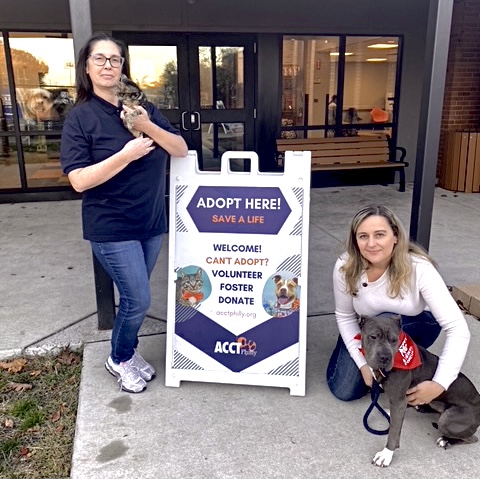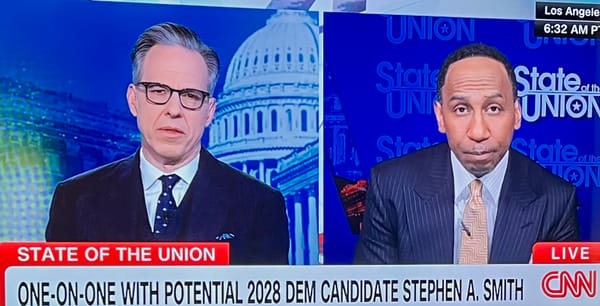Tear down the Brick Wall around ACCT Philly
First, the good news: Over the years, the number of animals being euthanized at the city animal shelter has dropped dramatically. The ACCT Philly “save rate” has increased from the 20% when it was known as PACCA 20 years ago, to (briefly) 92% for dogs and cats in January. (It has since declined to about 85%.)
That is very good news, but it ends there.
Since operation of the shelter was transferred from the Pennsylvania SPCA to the newly-formed ACCT Philly in 2012, executive directors have lasted about two years. It is almost impossible to create a well-oiled operation when a new boss, with new ideas about how things should run, comes in every two years. The executive directors have been the model of diversity -- male, female, Black, white, Latina.

The latest leader, Aurora Velazquez, left Nov. 12 under a cloud that neither she nor the board of directors who hired her would discuss. I will -- and more about the board in a minute.
Velazquez’s director of operations, Summer Dolder, left ACCT Philly two weeks before Velazquez. The city’s co-chair of the board, Joanna Otero-Cruz, left in October.
Co-chair Marsha Perelman, a long-time animal advocate, is joined as co-chair by Charlotte Castle, a deputy director in the managing director’s office with no experience in shelter operations.
Velazquez’s job is temporarily being filled by long-time ACCT staffer Tara Schernecke, director of field services, and Sarah Barnett, director of development and communications. They are co-executive directors.
Velazquez’s departure followed the unwarranted, mysterious and probably illegal death of a 5-year-old pit bull mix named Saint, who had been in a loving home.
Saint was dead within 12 hours after he hit ACCT Philly.
Saint lived with guardian Tiffany Lavelle and her son, who was devoted to the dog. Tiffany’s ex-boyfriend Bryan Landis was driving with Saint in his car on August 4 when he was stopped by Philadelphia police, who found he had a parole violation. Cops took him into custody and sent a happy, healthy Saint to ACCT Philly for safekeeping — they thought.
In less than 12 hours, Saint was euthanized — after suffering a broken jaw.
How the injury happened is a mystery.
Barnett denies reports that ACCT claimed police broke Saint’s jaw.
An informed source said the animal control officer who removed Saint from the police car with a metal control pole was Terrell Walton. ACCT would not make Walton available to me.
Both police and PSPCA are investigating, and have received surveillance video. Perelman says she can’t comment until those investigations are complete.
After viewing video, Barnett says it appeared Saint’s jaw was hurt while he was being removed from the police car, and the dog might have broken his jaw by biting on the control pole.
“That’s impossible,” says Stuart Goldman, former head of the Monmouth County (N.J.) SPCA shelter, a private eye who investigates animal abuse cases, including this one — and a dentist. Saint’s injuries, he says, were caused by blunt force trauma, like being hit with the control pole. If so, that would call for criminal charges of animal abuse.
The ACCT Philly sudden death syndrome for dogs is nothing new.
Back in 2004, as part of an expose about the city animal shelter, then called PACCA, I reported on a family pet named Sheea, who had run out of her home without her collar, and was found by a well-meaning stranger. He turned her into the shelter, and the Shetland sheepdog was dead 9 minutes later.
Ten years later, the same scenario brought Rhonda to ACCT, where she was put down 15 minutes after arrival. She was microchipped, but no one scanned her.
I heard of many other cases, but as a Daily News columnist, there was a limit to how many of these similar tragedies I could write about. But it is an obvious ongoing problem.
Here’s another problem — the board that oversees ACCT Philly.
Who oversees the board?
On paper, the managing director’s office.
But the managing director’s office sits a co-chair on the board. Critics say co-conspirator.
People with an objective view of operations work in, and with, ACCT. By that I mean ACCT staff members, volunteers who work in the shelter, and rescue groups that take animals from the shelter to find them homes, and sometimes get stuck with medical bills for sick animals.
Although the board should be answerable to the public, which provides tax funding for the shelter, the public is shut out. Give us your money, but shut up and go away, the board tells the taxpayers.
It was not always so.The public once was welcome.
After a contentious March 2017 board meeting attended by 60 people — mostly volunteers and rescue people with complaints about operations — the board responded by cutting the number of public meetings in half. In the current pandemic era, only five meetings are held, they are conducted by zoom, and no outsiders are permitted, board co-chair Perelman tells me.
Additionally, until 2018, the board published its minutes on the ACCT website. It no longer does, and has removed the earlier minutes. Welcome to “1984,” where Big Brother has a memory hole to dispose of unwelcome facts.
Why the changes?, I ask Perelman.
“As a 501(c)3 organization, [a tax-free nonprofit] ACCT revised its governance policies in 2019 to align with current thinking on best practices,” she says.
Who changed the “governance policies”? The board.
Why? Because it can. It writes its own rules, then rewrites them.
A Brick Wall has been built between the high-handed ACCT board and the taxpaying public.
Without the minutes we have no idea how many of the members listed on the website attend meetings. We don’t know if the list of members on the ACCT website is accurate.
As I write this, Otero-Cruz is listed as co-chair, but she’s gone.
There’s a confidence builder.
To be fair, the board headed by Perelman raised about $1 million to replace the city’s pandemic-caused 21% budget cut.
Applause for that, and other efforts, but not for autocracy.
Minutes also would reveal the plans the board has for the shelter, and report on how efficiently it is being operated.
The public has an absolute right to this information.
I asked the two “public citizens” on the board — former Mayor Ed Rendell and City Councilman Alan Domb — how they could justify the complete lockout of taxpayers, the people who pay the bills.
Domb evaded by saying he forwarded my question to the board. Rendell did not respond, as he sometimes does when he doesn’t like the question.
Finally, I ask new co-executive director Barnett if ACCT will release the investigatory reports from PSPCA and police department.
“I don’t know,” she says.
Now would be a good time to start tearing down the Brick Wall.



